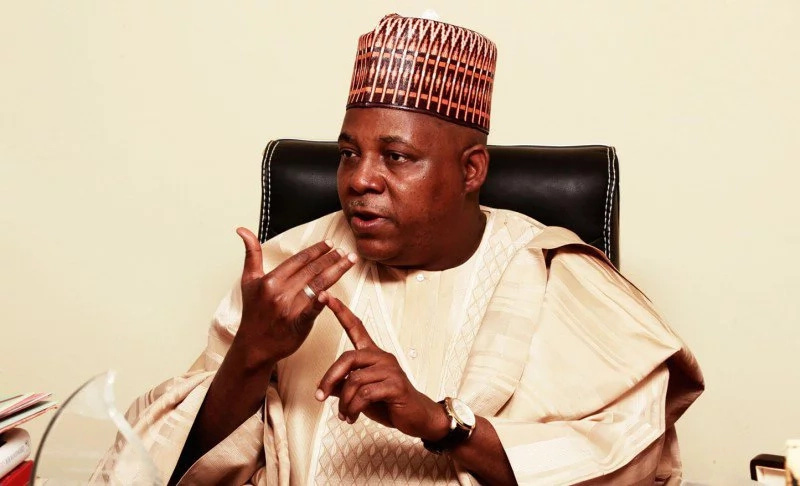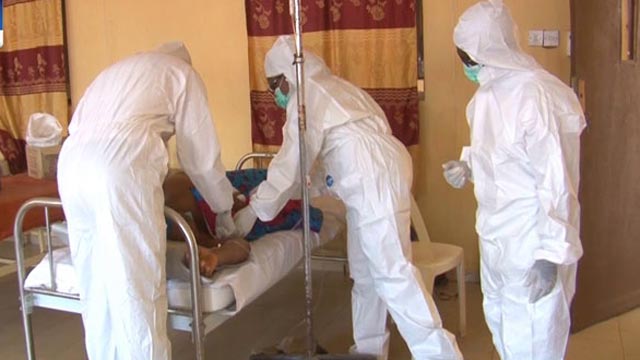FG Convenes Special National Council On Health Meeting In Abuja
The Federal Ministry of Health (FMoH), has convened a special National Council on Health (NCH) meeting, where all State Commissioners of Health and other stakeholders in the health sector will review the gains and lessons learnt from COVID-19 management, towards building a more resilient health sector in Nigeria.
At the opening of a two-day NCH meeting on Thursday, in Abuja, the Minister for Health, Dr Osagie Ehanire, said that Nigerians must remain alert as new variants of the virus which are more contagious and virulent, power new waves of infections.
The 2021 NCH theme: “The Journey to Attaining Sustainable Development Goals (SDGs): Applying Lessons from the COVID-19 Pandemic Towards Building A Resilient National Health System”.
The News Agency of Nigeria(NAN), reports that the 2014 National Health Act recognizes the NCH as the highest policy-making body within the Nigerian health sector.
The responsibilities of the NCH include the protection, promotion, improvement and maintenance of the health of the citizens of Nigeria and the formulation of policies.
The Council is also tasked with ensuring the delivery of basic health services to the people of Nigeria.
“Just in the last few days we have heard of the new ‘omicron’ variant, supposedly emerging from southern Africa, which has been labelled a variant of concern, and starting a new round of drastic measures like restrictions of flights and movement likely to hurt economic activities of countries.
“And so, whether it’s a COVID-19 variant or a new attack, we must strengthen our health security architecture to ensure we are prepared at all times to detect, and respond, in the interest of the health of our population,” he explained.
Ehanire noted that the end term of the SDGs was barely nine years away and targets of the health-related SGDs, especially SDG 3 were still far from being attained.
He stated that the National Strategic Health Development Plan(2), 2018-2022, providing the Medium-term health sector roadmap to attain the goals and objectives of the National policy and edge closer to the SDG targets was completing its life cycle.
“We need to take stock and ensure the succeeding plan addresses emerging needs in a post-pandemic era. While chances of meeting targets may now seem slim in the face of the challenges of the past year, the good news is that our nation can leverage lessons learnt from the fight against the COVID-19 pandemic, nationally and globally, to make bold decisions to build a resilient health system,” he said.
According to him, strong and resilient health systems are the lines of defence to pandemics and other health threats, while vaccines are the surest and most cost-effective measure we have so far, to contain the pandemic, but inequities in global distribution reduced the access of African countries to a fair share.
The minister stated that as of Nov, 27, over six million persons had received at least one dose of the COVID-19 vaccine and 3.4 million persons were fully vaccinated with two doses.
He said Nigeria was far from vaccinating 70 per cent of the eligible population for herd immunity, necessitating the ongoing mass vaccination exercise aimed at reaching 50 per cent of the eligible population by January 2022, but stressed that vaccine scepticism is still a huge challenge.
The minister noted that states had a role to play in addressing vaccine hesitancy and charged the State Commissioners to therefore continue to work strategically with the Federal organization, to address it and other challenges.
Ehanire disclosed that COVID-19 also brought a rude awakening of how totally import-dependent they were when it comes to pharmaceuticals, vaccines and other critical commodities.
“The realization of the urgency of domestic manufacturing has never been so clear. Developing and supporting capacity to begin indigenous medical Industry is a national security issue, to not only protect our citizens but also mitigate capital flight derived from importation of all vaccines,” he added.
According to him, the Federal Government is working with an indigenous private pharma company to make Nigeria a vaccine manufacturing hub for West Africa and beyond. Government has 49 percent stake in BioVaccines Nigeria Ltd (BVNL) a PPP venture to produce various vaccines in-country.



